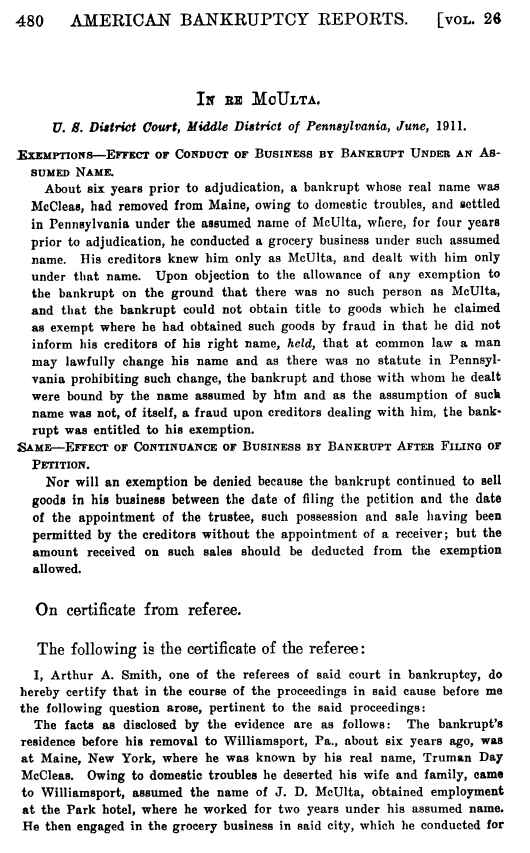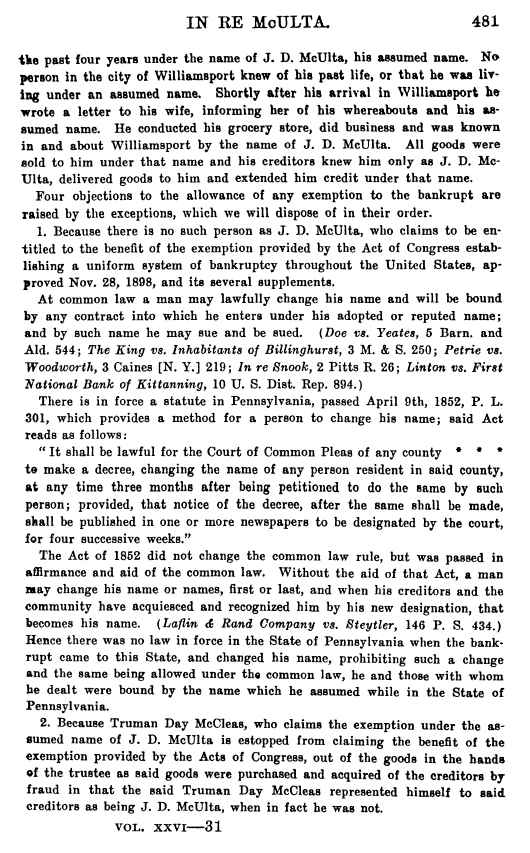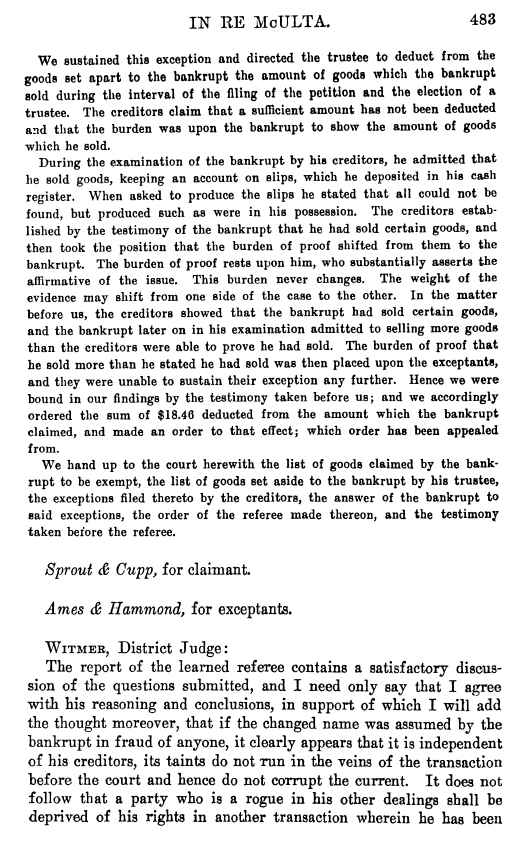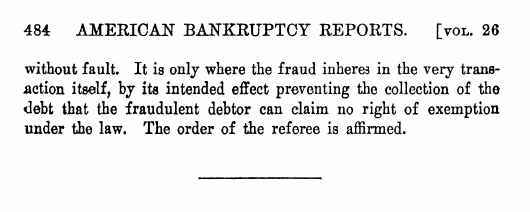
__________

__________

__________

__________

End
J.D. McUlta lived in the late 1800s and early 1900s. He was a man who lived an honest life. One day he moved to a new city and changed his name and did not tell anyone about his former name. He told people it was different, and it was. By the common law, this is totally legal, as long as you are not doing it for an unlawful purpose.
As you read the case below, you will see reference to a local statute of 1852, but even that did not hinder the common law right to do just as J.D. McUlta did -- he started telling people his name was different, and thus it was. Statutes only act as a supplement if you care to use them. The common law still stands. You will also notice references to a suits in England regarding the common law. That is because the common law of England is the law in the United States, the statutes are only optional supplements. Common law trumps civil law when invoked because it is the basis for it all.
When I read the account of this civil suit against J.D. in 1911, I was so moved and his story has been an immensely motivational force toward fighting for my own common law rights and in putting this site together, thus my naming the site, in part, in his honor. You can read the full case below. The suit is commonly referenced as In re McUlta 189 F. 250, the entry below is drawn from 26 A.B.R. 480:
The suit can also be viewed as a pdf.

__________

__________

__________

__________

End
From a reading of this, one might be tempted to think that if someone refuses to call someone by their new name, that that is completely okay. By other court cases shown on this site such as Jech v. Burch 466 F.Supp. 714 and United States v. Mount, 757 F.2d 1315, United States v. Cox, 593 F.2d 46, the burden of proof is not upon the one with the changed name. If one says it is different, it legally is. A civil court order is just an optional supplement to the name change that has already legally occurred.
One example of this is someone refusing to call another by their old name for religious reasons. That’s fine, freedom of religion is fundamental, but as name is a piece of property, you have exclusive control over it in all of your affairs, and when a violation of that control occurs, it falls under the common law form of action “Trespass on the Case.” More on common law forms of action and the rights they secure is found elsewhere on this site (see list of common law actions, and the form Trespass on the Case).
One might also be tempted to think that the phrase “and will be bound by any contract into which he enters under his adopted or reputed name” to mean that once you enter into a contract in one name, that because it is in that name, you cannot change it. The opposite is true. The law can only be understood as that you can change it at any time – but just because you have changed it, doesn’t mean you can get out of the contracts you’ve gotten yourself into. And J.D. McUlta himself was honest in his dealings, and thus he could not be faulted for changing his name at will. Statutory provisions are only optional supplements to the common law. The common law is what ACTUALLY changes it legally.
In essence, J.D. McUlta has been an inspiration. Thank you J.D. for your honesty and integrity. Your life is an example for us all.